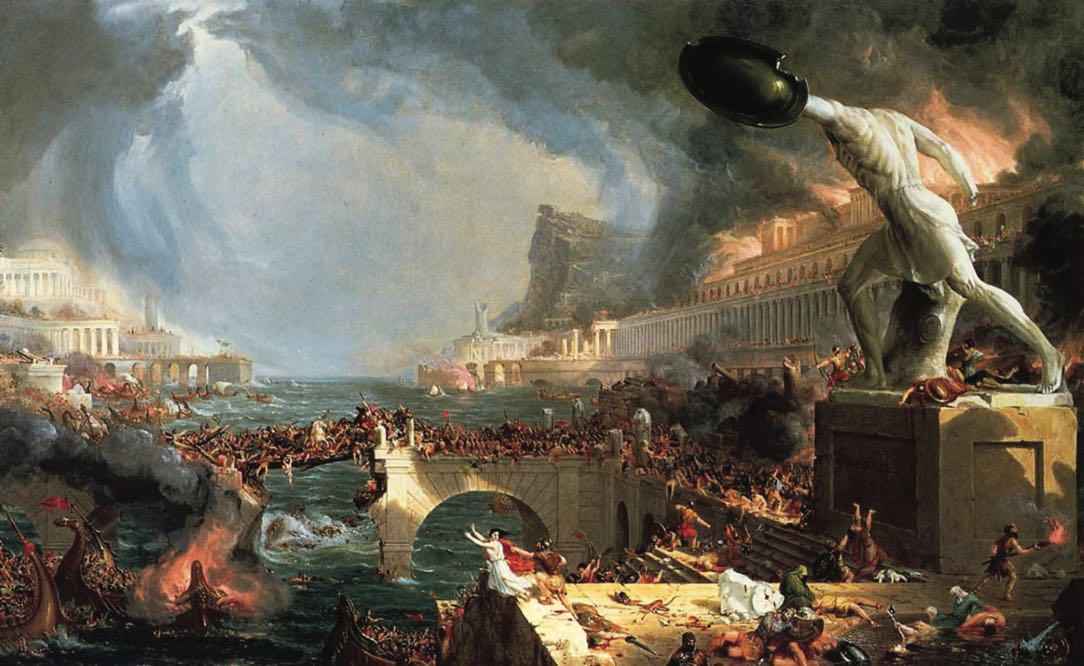
Perhaps the most famous allegory in philosophy is Plato's Allegory of the Cave, in which Plato, via Socrates, compares people who lack philosophical training to prisoners who have spent their entire lives in an underground cave and don't realise that there is a vast world beyond what they perceive. The Allegory of the Cave does not quite cut it as a myth, insofar as it lacks the sacred dimension that is the core of myth. But Plato did also write 'proper' myths into his Socratic dialogues, thereby - and unusually for the time - bridging the sharp divide between mythos and logos: between storytelling and reasoned discourse.
Plato didn't write dry analytical arguments, but lively fictional or semi-fictional dialogues, making him one of the most readable of all philosophers. His earlier dialogues feature Socrates questioning one or more people about the meaning of a particular concept, such as beauty, courage, or piety, in order to expose the contradictions in their assumptions and provoke a reappraisal of the concept - a debating method that has become known as the method of elenchus ('refutation') or the Socratic method. Into his dialogues Plato weaved myths, allegories, and metaphors. For instance, he famously compared the soul (aka mind - psyche) to a charioteer in a chariot pulled by two winged horses, one tame and noble (reason), the other wild and unruly (passion). All of his dialogues, with the single exception of the Crito, contain animal images, and Socrates himself is variously compared to a gadfly, a swan, a torpedo ray, a snake, a stork, and a fawn and outside the animal realm, to an empty jar filled with other people's ideas, and to a midwife, who helps pregnant souls give birth to wisdom. This is the voice of Meno, a young mercenary general with a philosophical bent, in Plato's Meno:
This story is from the August/September 2022 edition of Philosophy Now.
Start your 7-day Magzter GOLD free trial to access thousands of curated premium stories, and 9,000+ magazines and newspapers.
Already a subscriber ? Sign In
This story is from the August/September 2022 edition of Philosophy Now.
Start your 7-day Magzter GOLD free trial to access thousands of curated premium stories, and 9,000+ magazines and newspapers.
Already a subscriber? Sign In

Metaphors & Creativity
Ignacio Gonzalez-Martinez has a flash of inspiration about the role metaphors play in creative thought.

Medieval Islam & the Nature of God
Musa Mumtaz meditates on two maverick medieval Muslim metaphysicians.

Robert Stern
talks with AmirAli Maleki about philosophy in general, and Kant and Hegel in particular.

Volney (1757-1820)
John P. Irish travels the path of a revolutionary mind.

IT'S A WONDERFUL LIFE
Becky Lee Meadows considers questions of guilt, innocence, and despair in this classic Christmas movie.

"I refute it thus"
Raymond Tallis kicks immaterialism into touch.

Cave Girl Principles
Larry Chan takes us back to the dawn of thought.

A God of Limited Power
Philip Goff grasps hold of the problem of evil and comes up with a novel solution.

A Critique of Pure Atheism
Andrew Likoudis questions the basis of some popular atheist arguments.

Exploring Atheism
Amrit Pathak gives us a run-down of the foundations of modern atheism.